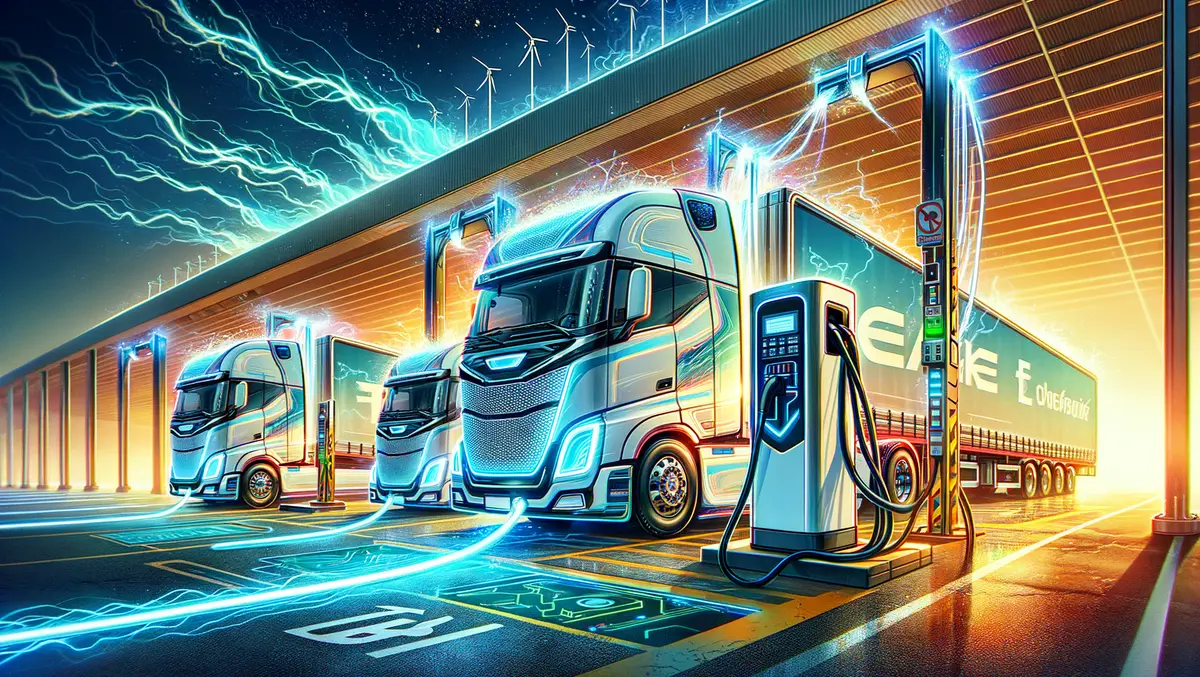The growing demand for zero-emission transportation solutions will gain a strong ally as Siemens Smart Infrastructure has announced the successful testing of the Megawatt Charging System (MCS) that delivered a 1MW charge for the first time. The test was undertaken using a prototype of the MCS in collaboration with a prototype of a long-haul eTruck from a 'well-established OEM.'
Siemens' prototype Megawatt Charging System might significantly change the landscape of long-haul trucking as it lengthens the distance that battery electric vehicles (BEVs) can cover. Such an implementation is expected to be a game-changer in heavy-duty vehicle electrification, boosting the potential for major advancements in sustainable transportation.
The prototype MCS is based on Siemens' existing SICHARGE portfolio, featuring multiple SICHARGE UC150 power cabinets, a switching matrix, and a customised MCS dispenser. This state-of-the-art charging system bundles the output power of the charging stations, directing the power to the MCS dispenser based on requirements. With this system, eTruck batteries could be charged from 20% to 80% in approximately 30 minutes at a suitable station with an output of around one megawatt.
Markus Mildner, CEO of eMobility, Siemens Smart Infrastructure, elaborated on the potential benefits of the system, stating, "Especially in long-distance transport, electric trucks and coaches will need fast MCS during the legally prescribed driving time break."
Mildner further highlighted that considerable strides will need to be taken by various stakeholders, including the government, to ensure nationwide distribution of such technology. However, he added, "The successful test brings us a big step forward on the technology side and underlines our ambition to actively make transport more sustainable."
In the EU, heavy-duty vehicles (HDVs) are responsible for over 25% of greenhouse gas emissions from road transportation. Given the commitment to climate neutrality by 2050, there is an increasing focus on reducing these emissions. As such, the EU Parliament recently adopted measures to strengthen CO2 emission reduction targets for new HDVs, with an emphasis on reducing CO2 emissions from large trucks and buses by 90% as of 2040. Further, by 2035, new urban buses will need to become zero-emission vehicles.
The electrification of long-distance trucking offers new competitive advantages for transport companies. A significant proportion of transport companies' customers now prioritise CO2-neutral transportation of their goods, indicating a shift in market demand that positions companies in favour that can meet these expectations. With the introduction of Siemens' MCS, progress in sustainable transformation surely advances a major step.



